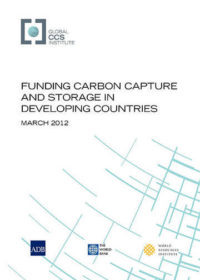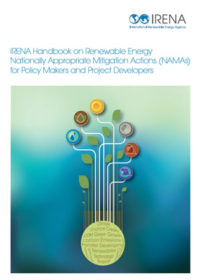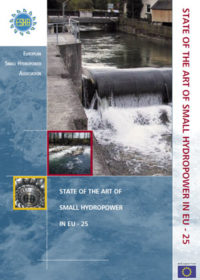Resources
Publications
Our publications, reports and research library hosts over 500 specialist reports and research papers on all topics associated with CCS.
View our Publication Library Disclaimer.
Filter by
Funding carbon capture and storage in developing countries
1st March 2012
Topic(s): Capacity development, Carbon capture use and storage (CCUS), Incentive mechanisms, Project financing
In order for CCS to play its role in reducing global CO2 emissions on a significant scale, it will need to be deployed in developed and developing countries, particularly given that it is expected that all of the net fossil fuel growth (and associated CO2 emissions) will be in developing countries in the coming decades.
While there is a strong climate change case for supporting CCS, there is currently only a relatively weak ‘business case’ for CCS in most developing countries. This report, developed for the Third Clean Energy Ministerial Meeting held in London on 25-26 April 2012, makes recommendations to Ministers on the need for short- and medium-term funding.
Disclaimer
The content within the Global CCS Institute Publications, Reports and Research Library is provided for information purposes only. We make every effort and take reasonable care to keep the content of this section up-to-date and error-free. However, we make no claim as to its accuracy, currency or reliability.
Content and material featured within this section of our website includes reports and research published by third parties. The content and material may include opinions and recommendations of third parties that do not reflect those held by the Global CCS Institute.
IRENA handbook on renewable energy nationally appropriate mitigation actions (NAMAs) for policy makers and project developers
1st January 2012
Topic(s): Domestic policy, Incentive mechanisms, Project financing, Renewables
This Handbook focuses on the role that Nationally Appropriate Mitigation Actions (NAMAs) can play in promoting renewable energy in developing countries. The concept of NAMAs was developed in the negotiations carried out under the United Nations Framework Convention on Climate Change (UNFCCC) to denote planned, voluntary greenhouse gas (GHG) mitigation actions in countries that do not have a legally binding emissions commitment. Notifying a NAMA thus practically means putting a UNFCCC-backed label on national development activities with mitigation effects. Renewable energy, being carbon dioxide-free, is a perfect candidate for a NAMA as it combines development benefits through the provision of energy with GHG reduction.
Disclaimer
The content within the Global CCS Institute Publications, Reports and Research Library is provided for information purposes only. We make every effort and take reasonable care to keep the content of this section up-to-date and error-free. However, we make no claim as to its accuracy, currency or reliability.
Content and material featured within this section of our website includes reports and research published by third parties. The content and material may include opinions and recommendations of third parties that do not reflect those held by the Global CCS Institute.
State of the art of small hydropower in EU – 25
1st January 2008
Topic(s): Domestic policy, Hydroelectricity, Incentive mechanisms
This report describes the advantages of small hydropower (SHP) and the status of the industry in Europe. It also outlines the European policy framework, and market incentives and support mechanisms. The report concludes with a discussion of challenges including standards and raising awareness.
Disclaimer
The content within the Global CCS Institute Publications, Reports and Research Library is provided for information purposes only. We make every effort and take reasonable care to keep the content of this section up-to-date and error-free. However, we make no claim as to its accuracy, currency or reliability.
Content and material featured within this section of our website includes reports and research published by third parties. The content and material may include opinions and recommendations of third parties that do not reflect those held by the Global CCS Institute.


